“Do you suggest following schedules or wake windows?” I get asked this question ALL. OF. THE. TIME.
So here is my answer: IT DEPENDS! This isn’t a one size fits all approach. My answer is going to differ from family to family. This post elaborates on the things that I take into consideration when suggesting schedules or wake windows.
Let’s back up just a bit and define schedules and wake windows for those of you who have absolutely no idea what I am talking about!
What Is A Schedule?
Schedules are used to describe your child’s day to day activities (eating, sleeping, playing) in accordance with the time on the clock. Someone who follows a daily schedule will always put their child down for their first nap at the same time. No matter when they woke up that morning.
Here is an EXAMPLE of a 3 nap/ day schedule:
7:00am – wake + feed
8:30am – nap 1
10:00am – feed
11:30am – nap 2
1:00pm – feed
3:00pm – nap 3
4:30pm – feed
6:30pm – feed + bedtime routine
7:00pm – bedtime
For more schedule examples, check out my complete schedule guide. This guide provides by the clock schedules (includes sleep times, feed times, and play times) for children ages 2 weeks – 5 years old.
What Is A Wake Window?
Wake windows are used to describe your child’s awake time between naps. Wake windows are identified using your child’s age and sleepy cues. Someone who follows wake windows will put their child down for their first nap a certain amount of time after they woke up that morning and/or when they begin showing signs of sleepiness.
Here is an EXAMPLE of wake windows for a 5-month-old (usually 3 naps/ day)
Feed upon waking in the morning
1.5 hours after waking – nap 1
Feed upon waking from nap 1
1.5 hours after waking from nap 1 – nap 2
Feed upon waking from nap 2
2 hours after waking from nap 2 – nap 3
Feed upon waking from nap 3
2.5 hours after waking from nap 3 – bedtime
So which is better- schedules or wake windows?
In order to determine if schedules or wake windows would be more appropriate for a family, I have to look at the big picture. The family unit, the family personality, and the ages of the child(ren) are all important aspects to consider.
Family Unit
Is there one child or several children?
Do the older children have to be driven a million places in a day or are they home all day?
Are the kids in daycare/ school?
Is the childcare situation the same all week or different depending on the day?
Depending on the answers to these questions, I can help get a better idea of what is even realistic for a family. For example, if every day consists of different childcare, different activities, etc., a by the clock schedule might be really hard and stressful for a family to follow. But, a child is home with a nanny and you have the ability to plan all activities, then a by the clock schedule might be perfect!
Family Personality
It is no surprise that there are all different types of people out there. Some people are extremely type A, while others tend to be more go with the flow. If you are a type A person/ family who likes a plan and takes comfort in knowing exactly what to expect, then a by the clock schedule probably speaks to you.
Because these families follow the time on the clock, they know exactly when they can plan doctor appointments or get together with friends. You would never catch these families registered for a music class that falls smack in the middle of nap time.
If you are a more go with the flow person/ family, it probably doesn’t bother you much if your day-to-day varies slightly. Therefore, you may choose to follow your child’s wake windows. You are fine with waking up at a different time every morning and working events around naps on more of a day-to-day basis (or maybe you work naps around events).
Age of Child(ren)
This one might seem a little funny to you. However, it isn’t abnormal for families to switch between schedules and wake windows, depending on the age of their child.
Newborns and infants have a lot to do during a day. They require a lot of daytime sleep and a specific number of daytime calories. Sometimes families will find that if they don’t have all of these activities planned out in advance, their child will fall short of their sleep/ calorie goals. Sometimes this results in more nighttime wakings. For this reason, many families with young children prefer to stick to a by the clock schedule.
Older infants, toddlers, and children, however, don’t require as much daytime sleep. Their calories also don’t need to be monitored as closely. For this reason, it can seem easier to be a little more “flexible” with your little’s day-to-day. When you only need to consider 1-2 naps/ day you might be fine waiting to get the cues from your child that they are ready for a nap because it doesn’t mean your day will be dramatically different.
Hopefully you found this post helpful! Maybe you were even able to narrow down the best approach for your family! My hope is that you no longer see schedules or wake windows as right or wrong, but rather as best for me right now or not best for me right now.
Still not sure if schedules or wake windows are right for you?
I’m including some of the most common scenarios and what I would recommend below. Remember, these examples don’t take the big picture into consideration, so it is possible that what I recommend here wouldn’t be the best option for a family. If you’ve worked with me before, you know that I ask no less than one million questions before I recommend ANYTHING!
Scenario 1
First time newborn parents who feel like they have absolutely no idea what they are doing
My recommendation: schedule
Scenario 2
People or families who are easily overwhelmed by the idea of being “off schedule.”
My recommendation: wake windows
Scenario 3
Families who are not schedule oriented and are more go with the flow
My recommendation: wake windows
Scenario 4
People who are goal oriented, schedulers, and like a plan
My recommendation: schedule
Scenario 5
People with large families/ several kids
My recommendation: wake windows
Scenario 6
Families who don’t feel confident in reading their baby’s sleepy cues
My recommendation: schedule




















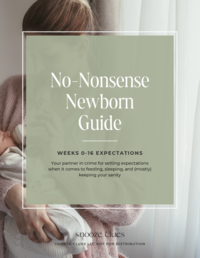
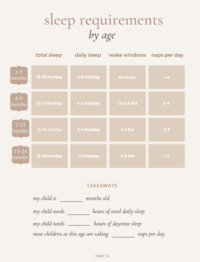
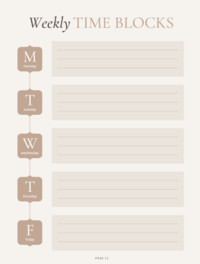
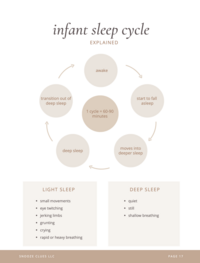



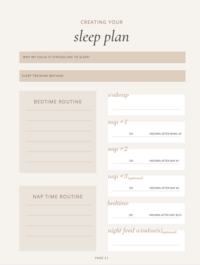

Read the Comments +